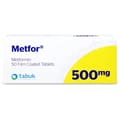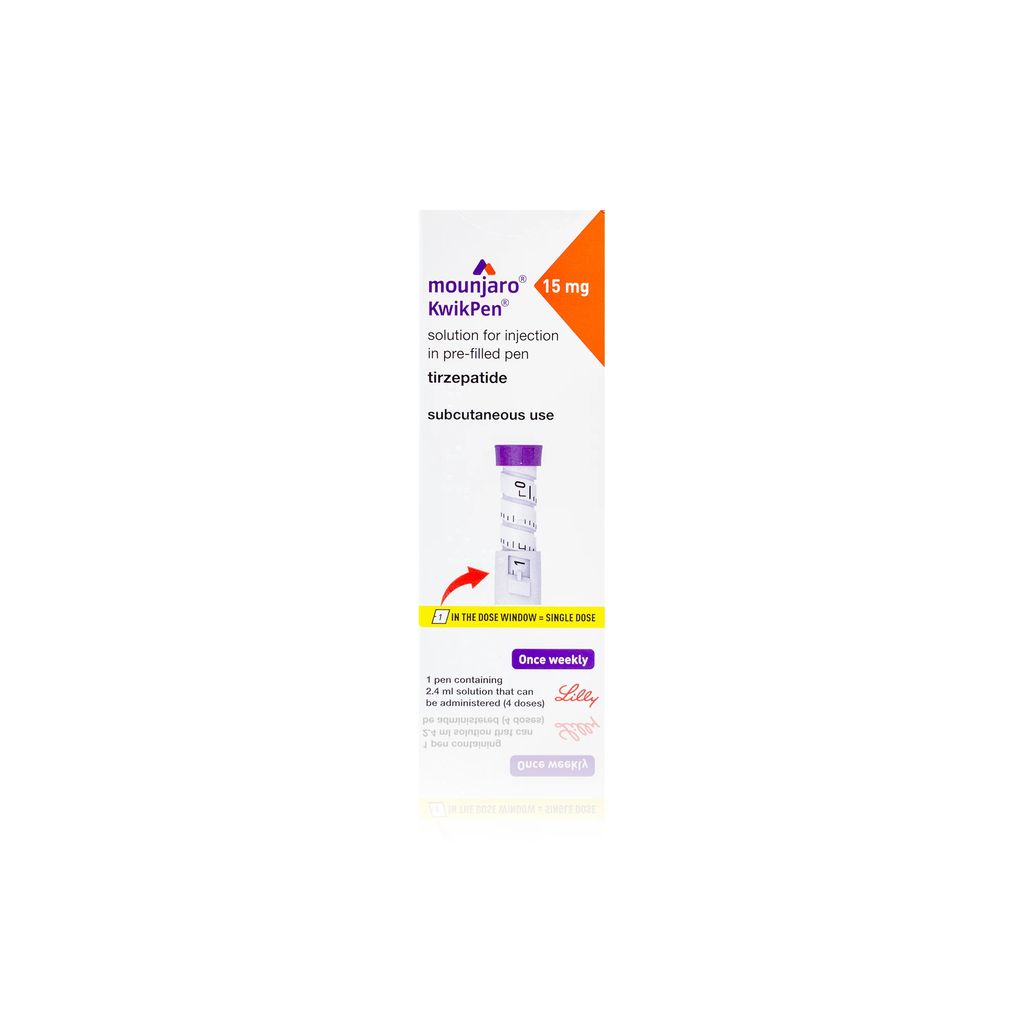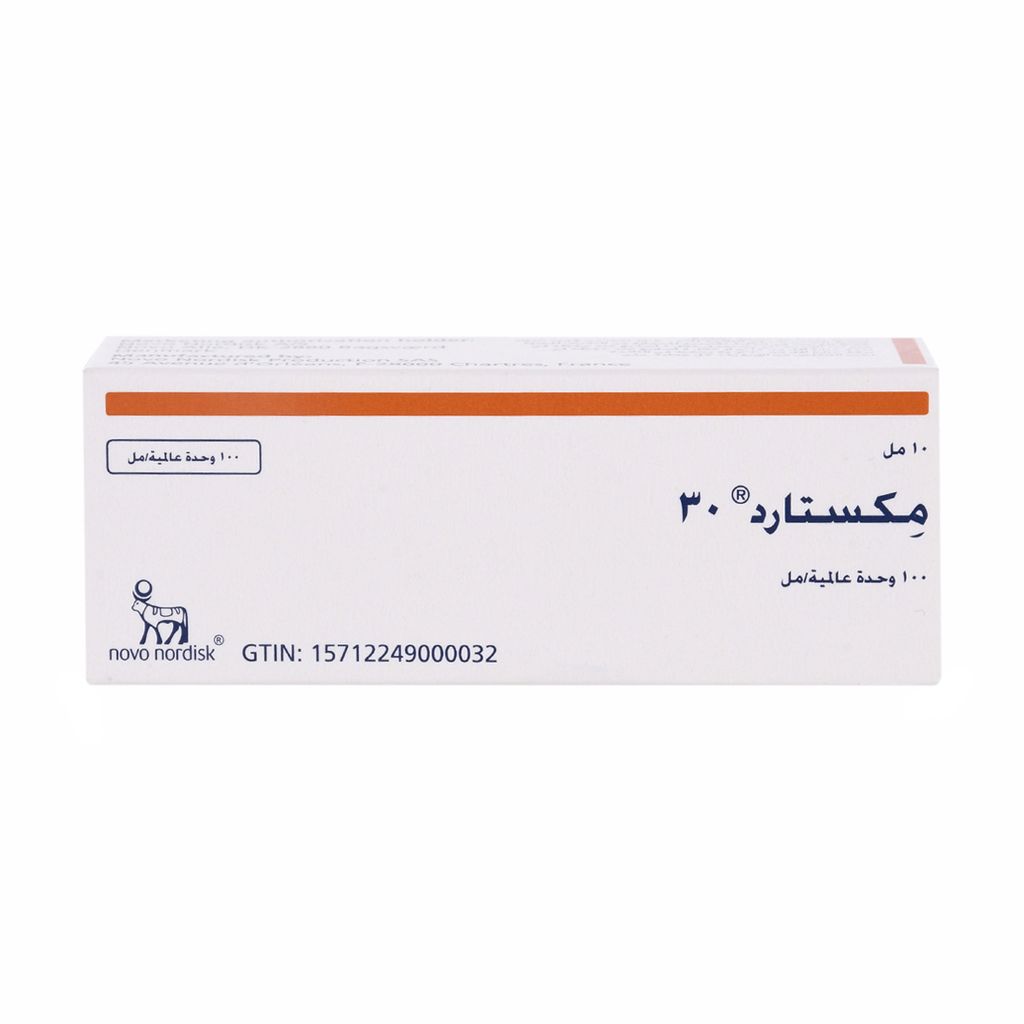One Square - Ar Rabi, 7773, 13315 Riyadh SA
Whites
One Square - Ar Rabi, 7773, Riyadh, SA
+966920006648 https://www.whites.net/s/5e5b8eb5e1a30016118f588f/62495a1e58355cabd8278173/app-icon-1024x1024px-480x480.png" [email protected] 5e9d4b8c4aff97384d3e84dd Metfor 500 mg Tablet 50pcs https://www.whites.net/s/5e5b8eb5e1a30016118f588f/63a3fc53459ae0007e8ef6b8/4785.jpg
What metformin hydrochloride is used for:
- Metformin hydrochloride is used to treat patients with type 2 diabetes (also called non-insulin dependent diabetes) when diet and exercise alone have not been enough to control your blood glucose levels. It is used particularly in overweight patients.
Do not take metformin hydrochloride:
- If you are allergic to metformin hydrochloride or any of the other ingredients of this medicine
- If you have liver problems
- If you have severely reduced kidney function
- If you have uncontrolled diabetes, with, for example, severe hyperglycemia, nausea, vomiting, diarrhea, rapid weight loss…
- If you have severe infection, such as an infection affecting your lung or bronchial system or your kidney
- If you are treated for acute heart failure or have recently had a heart attack, have severe problems with your circulation or have breathing difficulties
- If you drink a lot of alcohol
Warnings and precautions:
Risk of lactic acidosis:
- Metformin hydrochloride may cause a very rare but very serious side effect called lactic acidosis, particularly if your kidneys are not working properly, if you have uncontrolled diabetes, serious infections, liver problems, dehydration.
- Stop taking metformin hydrochloride and contact a doctor or the nearest hospital immediately if you experience some of the symptoms of lactic acidosis, as this condition may lead to coma.
Symptoms of lactic acidosis:
- Vomiting
- Stomach ache
- Muscle cramps
- A general feeling of not being well with severe tiredness
- Difficulty in breathing
- Reduced body temperature and heartbeat
Risk of hypoglycemia:
- If you take metformin hydrochloride together with other medicines to treat diabetes, that can cause hypoglycemia.
- If you experience symptoms of hypoglycemia such as weakness, dizziness, increased sweating, fast heart beating, vision disorders or difficulty in concentration, it usually helps to eat or drink something containing sugar.
Possible side effects of metformin hydrochloride:
- All medicines can have side effects. Sometimes they are serious, most of the time they are not.
- You may need medical treatment if you get some of the side effects.
- Tell your doctor if you notice any of the following and they worry you:
- Lactic acidosis which can lead to coma
- Digestive problems such as nausea, vomiting, diarrhea, abdominal pain and loss of appetite
- Change in taste
Other medicines and metformin hydrochloride:
- Tell your doctor if you are using, have recently used or might use any other medicines.
- Medicines which increase urine production (diuretics)
- Medicines used to treat pain and inflammation (NSAIDs)
- Certain medicines for the treatment of high blood pressure
- Beta-2 agonists such as salbutamol (to treat asthma)
- Corticosteroids
- Other medicines used to treat diabetes
in stockSAR 15.7
METFOR
Email ID already exists!
Your Current password is incorrect
Password Updated Successfully
Thanks for your Feedback
- Home
- Medications
- Medication
- Metfor 500 mg Tablet 50pcs
Metfor 500 mg Tablet 50pcs
 15.7
15.7This Product is only deliverable in Riyadh
Available
See all products of this brand to stay updated on exciting launches, new collections & more!
What metformin hydrochloride is used for:
- Metformin hydrochloride is used to treat patients with type 2 diabetes (also called non-insulin dependent diabetes) when diet and exercise alone have not been enough to control your blood glucose levels. It is used particularly in overweight patients.
Do not take metformin hydrochloride:
- If you are allergic to metformin hydrochloride or any of the other ingredients of this medicine
- If you have liver problems
- If you have severely reduced kidney function
- If you have uncontrolled diabetes, with, for example, severe hyperglycemia, nausea, vomiting, diarrhea, rapid weight loss…
- If you have severe infection, such as an infection affecting your lung or bronchial system or your kidney
- If you are treated for acute heart failure or have recently had a heart attack, have severe problems with your circulation or have breathing difficulties
- If you drink a lot of alcohol
Warnings and precautions:
Risk of lactic acidosis:
- Metformin hydrochloride may cause a very rare but very serious side effect called lactic acidosis, particularly if your kidneys are not working properly, if you have uncontrolled diabetes, serious infections, liver problems, dehydration.
- Stop taking metformin hydrochloride and contact a doctor or the nearest hospital immediately if you experience some of the symptoms of lactic acidosis, as this condition may lead to coma.
Symptoms of lactic acidosis:
- Vomiting
- Stomach ache
- Muscle cramps
- A general feeling of not being well with severe tiredness
- Difficulty in breathing
- Reduced body temperature and heartbeat
Risk of hypoglycemia:
- If you take metformin hydrochloride together with other medicines to treat diabetes, that can cause hypoglycemia.
- If you experience symptoms of hypoglycemia such as weakness, dizziness, increased sweating, fast heart beating, vision disorders or difficulty in concentration, it usually helps to eat or drink something containing sugar.
Possible side effects of metformin hydrochloride:
- All medicines can have side effects. Sometimes they are serious, most of the time they are not.
- You may need medical treatment if you get some of the side effects.
- Tell your doctor if you notice any of the following and they worry you:
- Lactic acidosis which can lead to coma
- Digestive problems such as nausea, vomiting, diarrhea, abdominal pain and loss of appetite
- Change in taste
Other medicines and metformin hydrochloride:
- Tell your doctor if you are using, have recently used or might use any other medicines.
- Medicines which increase urine production (diuretics)
- Medicines used to treat pain and inflammation (NSAIDs)
- Certain medicines for the treatment of high blood pressure
- Beta-2 agonists such as salbutamol (to treat asthma)
- Corticosteroids
- Other medicines used to treat diabetes
Recommended dose is:
Children 10 years and over and adolescents:
- usually start with 500 mg or 850 mg metformin hydrochloride once a day.
- The maximum daily dose 2000 mg taken 2 or 3 divided doses
Adults:
- usually start with 500 mg or 850 mg metformin hydrochloride 2 or 3 times a day.
- The maximum daily dose is 3000 mg taken as 3 divided doses
Related products
MIKOZAL
ميكوزال كريم 30 جرام
 14.1 SAVE 0% SAVE
14.1 SAVE 0% SAVE  0
0{"_id":"5e9d4b8e837af137b82d82aa","name":"ميكوزال كريم 30 جرام","price":14.1,"brand":"MIKOZAL","sku":"4809","inventory_quantity":1,"seller":"5e5ba36356297b5dd7d7df93","available":true,"images":[{"image":"5e9d4b8e837af137b82d82aa/111771-0089.jpg","caption":"","tags":""},{"image":"5e9d4b8e837af137b82d82aa/111771-0089-2.jpg","caption":"","tags":""},{"image":"5e9d4b8e837af137b82d82aa/111771-0089-3.jpg","caption":"","tags":""}],"metafields":{"riyadh_only":1,"gtin_1":"6291100080526","kunooz_categories":["prescribed-medicine","pharmacy"],"whites_categories":[]},"alias":"mikozal-cream-30g","sort_order":1398,"_metadata":{},"collections":["shop-under-90-sar","below-sr-100","not-coupon-k25-items"],"categories":["pharmacy","medication","antibiotics-and-fungal"],"list_price":14.1,"our_price":14.1,"original_price":14.1,"discounts_total":0,"discounts_percentage":"0.000","discount_total":0,"original_sort_order":1398,"entity_type":"ms.products","selected_options":{},"selected_variant":{}}
يصرف بوصفه طبية
MOUNJARO
مونجارو كويك بن 15 مج قلم واحد
 1261.4 SAVE 0% SAVE
1261.4 SAVE 0% SAVE  0
0{"_id":"66d5a5c8c392a90032627d66","_metadata":{},"seller":"5e5ba36356297b5dd7d7df93","alias":"mounjaro-15-mg-0-6ml-kwikpen-4-doses","images":[{"image":"s/5e5b8eb5e1a30016118f588f/68dcc4b0ef06b0f3d70d932c/5014602102067_1.webp"}],"collections":["all-items-live-2024"],"categories":["prescribed-medicines","medicines","medication","medications","wellness"],"metafields":{"kunooz_label2_name":"يصرف بوصفه طبية","kunooz_label2_color":"#BF1717","whites_label2_name":"يصرف بوصفه طبية","whites_label2_color":"#DA198A","unitSAP":"EA","kunooz_product_type":[],"health_conditions":[],"frequently_bought":[],"use_it_with":[],"pick_your_free_items":[],"combo_offer":[],"kunooz_categories":["prescribed-medicines","medicines"],"whites_categories":["medication","medications","wellness"],"skin_tone":[],"lips":[],"kunooz_seo":{},"whites_seo":{},"benefits":"","ingredients":"","how_to_use":"","what_is":"","therapeutic_uses":"","dosage_and_administration":"","contraindication_and_drug_interaction":"","warning_and_precautions":"","side_effects":"","more_information":"","riyadh_only":1},"sku":"53204","name":"مونجارو كويك بن 15 مج قلم واحد","price":1261.4,"inventory_quantity":158,"available":true,"sort_order":0,"brand":"MOUNJARO","avg_rating":0,"num_reviews":0,"list_price":1261.4,"our_price":1261.4,"original_price":1261.4,"discounts_total":0,"discounts_percentage":"0.000","discount_total":0,"original_sort_order":0,"entity_type":"ms.products","selected_options":{},"selected_variant":{}}
MIXTARD
ميكستارد 30
 65 SAVE 0% SAVE
65 SAVE 0% SAVE  0
0{"_id":"5e9d4b903bd21337b48d2b24","name":"ميكستارد 30","price":65,"brand":"MIXTARD","sku":"15116","inventory_quantity":1,"seller":"5e5ba36356297b5dd7d7df93","available":true,"images":[{"image":"5e9d4b903bd21337b48d2b24/2281000000100.jpg","caption":"","tags":""},{"image":"5e9d4b903bd21337b48d2b24/2281000000100-2.jpg","caption":"","tags":""},{"image":"5e9d4b903bd21337b48d2b24/2281000000100-3.jpg","caption":"","tags":""},{"image":"5e9d4b903bd21337b48d2b24/1572249000032-2.jpg","caption":"","tags":""}],"metafields":{"riyadh_only":1,"gtin_1":"2281000000100","gtin_2":"1571224900003","kunooz_categories":["prescribed-medicine","pharmacy"],"whites_categories":[],"unitSAP":"EA","kunooz_product_type":[],"health_conditions":[],"frequently_bought":[],"use_it_with":[],"pick_your_free_items":[],"combo_offer":[],"skin_tone":[],"lips":[],"kunooz_seo":{},"whites_seo":{},"benefits":"","ingredients":"human insulin","how_to_use":"","what_is":"<p style=\"color: #000000; font-family: Verdana,Arial,Helvetica,sans-serif; font-size: 14px; font-style: normal; font-variant: normal; font-weight: 400; letter-spacing: normal; orphans: 2; text-align: left; text-decoration: none; text-indent: 0px; text-transform: none; -webkit-text-stroke-width: 0px; white-space: normal; word-spacing: 0px;\"> </p>\n<p style=\"color: #000000; font-family: Verdana,Arial,Helvetica,sans-serif; font-size: 14px; font-style: normal; font-variant: normal; font-weight: 400; letter-spacing: normal; orphans: 2; text-align: left; text-decoration: none; text-indent: 0px; text-transform: none; -webkit-text-stroke-width: 0px; white-space: normal; word-spacing: 0px;\"><strong>ماهو ؟</strong></p>\n<p style=\"color: #000000; font-family: Verdana,Arial,Helvetica,sans-serif; font-size: 14px; font-style: normal; font-variant: normal; font-weight: 400; letter-spacing: normal; orphans: 2; text-align: left; text-decoration: none; text-indent: 0px; text-transform: none; -webkit-text-stroke-width: 0px; white-space: normal; word-spacing: 0px;\"><span>علاج السكري</span></p>\n<p style=\"color: #000000; font-family: Verdana,Arial,Helvetica,sans-serif; font-size: 14px; font-style: normal; font-variant: normal; font-weight: 400; letter-spacing: normal; orphans: 2; text-align: left; text-decoration: none; text-indent: 0px; text-transform: none; -webkit-text-stroke-width: 0px; white-space: normal; word-spacing: 0px;\">محتويات هذا الموقع هي لأغراض تثقيفية فقط وليست بديلة للإستشارة الطبية أو التشخيص أو العلاج. يرجى إستشارة طبيب أو مقدم رعاية صحية مؤهل ومراجعته بأي أسئلة قد تكون لديكم بخصوص اي حالة طبية. لا تتجاهل النصيحة الطبية المتخصصة أو تتأخر في طلبها بسبب شيء قرأته على هذا الموقع، لمزيد من التفاصيل حول معلومات المنتج يرجى الرجوع إلى النشرة المرفقة به.</p>","therapeutic_uses":"<p style=\"color: #000000; font-family: Verdana,Arial,Helvetica,sans-serif; font-size: 14px; font-style: normal; font-variant: normal; font-weight: 400; letter-spacing: normal; orphans: 2; text-align: left; text-decoration: none; text-indent: 0px; text-transform: none; -webkit-text-stroke-width: 0px; white-space: normal; word-spacing: 0px;\"><strong>ماهي دواعي الاستخدام ؟</strong></p>\n<p style=\"color: #000000; font-family: Verdana,Arial,Helvetica,sans-serif; font-size: 14px; font-style: normal; font-variant: normal; font-weight: 400; letter-spacing: normal; orphans: 2; text-align: left; text-decoration: none; text-indent: 0px; text-transform: none; -webkit-text-stroke-width: 0px; white-space: normal; word-spacing: 0px;\"><span> الأنسولين البشري المستخدم لعلاج مرض السكري</span></p>\n<p style=\"color: #000000; font-family: Verdana,Arial,Helvetica,sans-serif; font-size: 14px; font-style: normal; font-variant: normal; font-weight: 400; letter-spacing: normal; orphans: 2; text-align: left; text-decoration: none; text-indent: 0px; text-transform: none; -webkit-text-stroke-width: 0px; white-space: normal; word-spacing: 0px;\">محتويات هذا الموقع هي لأغراض تثقيفية فقط وليست بديلة للإستشارة الطبية أو التشخيص أو العلاج. يرجى إستشارة طبيب أو مقدم رعاية صحية مؤهل ومراجعته بأي أسئلة قد تكون لديكم بخصوص اي حالة طبية. لا تتجاهل النصيحة الطبية المتخصصة أو تتأخر في طلبها بسبب شيء قرأته على هذا الموقع، لمزيد من التفاصيل حول معلومات المنتج يرجى الرجوع إلى النشرة المرفقة به.</p>","dosage_and_administration":"<p style=\"color: #000000; font-family: Verdana,Arial,Helvetica,sans-serif; font-size: 14px; font-style: normal; font-variant: normal; font-weight: 400; letter-spacing: normal; orphans: 2; text-align: left; text-decoration: none; text-indent: 0px; text-transform: none; -webkit-text-stroke-width: 0px; white-space: normal; word-spacing: 0px;\"><span style=\"color: #000000; font-family: &quot; docs-calibri&quot;; font-size: 15px; font-style: normal; font-variant: normal; font-weight: normal; letter-spacing: normal; orphans: 2; text-align: right; text-decoration: none; text-indent: 0px; text-transform: none; -webkit-text-stroke-width: 0px; white-space: pre-wrap; word-spacing: 0px;\">تناول هذا الدواء دائمًا كما أخبرك طبيبك.</span></p>\n<p style=\"color: #000000; font-family: Verdana,Arial,Helvetica,sans-serif; font-size: 14px; font-style: normal; font-variant: normal; font-weight: 400; letter-spacing: normal; orphans: 2; text-align: left; text-decoration: none; text-indent: 0px; text-transform: none; -webkit-text-stroke-width: 0px; white-space: normal; word-spacing: 0px;\"><span style=\"color: #000000; font-family: &quot; docs-calibri&quot;; font-size: 15px; font-style: normal; font-variant: normal; font-weight: normal; letter-spacing: normal; orphans: 2; text-align: right; text-decoration: none; text-indent: 0px; text-transform: none; -webkit-text-stroke-width: 0px; white-space: pre-wrap; word-spacing: 0px;\">تعتمد الجرعه على حالة المرض ويجب أن يحددها الطبيب</span></p>\n<p style=\"color: #000000; font-family: Verdana,Arial,Helvetica,sans-serif; font-size: 14px; font-style: normal; font-variant: normal; font-weight: 400; letter-spacing: normal; orphans: 2; text-align: left; text-decoration: none; text-indent: 0px; text-transform: none; -webkit-text-stroke-width: 0px; white-space: normal; word-spacing: 0px;\"><span style=\"color: #000000; font-family: &quot; docs-calibri&quot;; font-size: 15px; font-style: normal; font-variant: normal; font-weight: normal; letter-spacing: normal; orphans: 2; text-align: right; text-decoration: none; text-indent: 0px; text-transform: none; -webkit-text-stroke-width: 0px; white-space: pre-wrap; word-spacing: 0px;\"><span style=\"color: #000000; font-family: &quot; times new roman&quot;; font-size: 15px; font-style: normal; font-variant: normal; font-weight: normal; letter-spacing: normal; orphans: 2; text-align: center; text-decoration: none; text-indent: 0px; text-transform: none; -webkit-text-stroke-width: 0px; white-space: pre-wrap; word-spacing: 0px;\">محتويات هذا الموقع هي لأغراض تثقيفية فقط وليست بديلة للإستشارة الطبية أو التشخيص أو العلاج. يرجى إستشارة طبيب أو مقدم رعاية صحية مؤهل ومراجعته بأي أسئلة قد تكون لديكم بخصوص اي حالة طبية. لا تتجاهل النصيحة الطبية المتخصصة أو تتأخر في طلبها بسبب شيء قرأته على هذا الموقع، لمزيد من التفاصيل حول معلومات المنتج يرجى الرجوع إلى النشرة المرفقة به.</span></span></p>","contraindication_and_drug_interaction":"<p style=\"color: #000000; font-family: Verdana,Arial,Helvetica,sans-serif; font-size: 14px; font-style: normal; font-variant: normal; font-weight: 400; letter-spacing: normal; orphans: 2; text-align: left; text-decoration: none; text-indent: 0px; text-transform: none; -webkit-text-stroke-width: 0px; white-space: normal; word-spacing: 0px;\"><span>أخبر طبيبك عن جميع الأدوية التي تتناولها بما في ذلك الوصفات الطبية والأدوية التي لا تتطلب وصفة طبية والفيتامينات والمكملات العشبية. أخبر طبيبك بشكل خاص إذا</span></p>\n<p style=\"color: #000000; font-family: Verdana,Arial,Helvetica,sans-serif; font-size: 14px; font-style: normal; font-variant: normal; font-weight: 400; letter-spacing: normal; orphans: 2; text-align: left; text-decoration: none; text-indent: 0px; text-transform: none; -webkit-text-stroke-width: 0px; white-space: normal; word-spacing: 0px;\"><span> لا تستخدم Mixtard® 30: ► في مضخات ضخ الأنسولين. ► إذا كان لديك حساسية (مفرطة الحساسية) تجاه الأنسولين البشري أو أي من المكونات الأخرى في Mixtard® 30 ► إذا كنت تشك في أن نقص السكر في الدم يبدأ ► إذا كان الغطاء الواقي فضفاضًا أو مفقودًا</span></p>\n<p style=\"color: #000000; font-family: Verdana,Arial,Helvetica,sans-serif; font-size: 14px; font-style: normal; font-variant: normal; font-weight: 400; letter-spacing: normal; orphans: 2; text-align: left; text-decoration: none; text-indent: 0px; text-transform: none; -webkit-text-stroke-width: 0px; white-space: normal; word-spacing: 0px;\">محتويات هذا الموقع هي لأغراض تثقيفية فقط وليست بديلة للإستشارة الطبية أو التشخيص أو العلاج. يرجى إستشارة طبيب أو مقدم رعاية صحية مؤهل ومراجعته بأي أسئلة قد تكون لديكم بخصوص اي حالة طبية. لا تتجاهل النصيحة الطبية المتخصصة أو تتأخر في طلبها بسبب شيء قرأته على هذا الموقع، لمزيد من التفاصيل حول معلومات المنتج يرجى الرجوع إلى النشرة المرفقة به.</p>","warning_and_precautions":"<p style=\"text-align: right;\"><span>تحدث إلى طبيبك قبل تناول هذا الدواء ، إذا</span></p>\n<p style=\"text-align: right;\"><span> انتبه بشكل خاص مع Mixtard® 30: ► إذا كنت تعاني من مشاكل في الكلى أو الكبد ، أو في الغدة الكظرية أو الغدة النخامية أو الغدة الدرقية. . ► إذا كنت تمارس الرياضة أكثر من المعتاد أو إذا كنت ترغب في تغيير نظامك الغذائي المعتاد ، فقد يؤثر ذلك على نسبة السكر في الدم مستوى. ► إذا كنت مريضا ، استمر في أخذ الأنسولين واستشر طبيبك. ► إذا كنت مسافرا إلى الخارج</span></p>\n<p style=\"text-align: right;\">محتويات هذا الموقع هي لأغراض تثقيفية فقط وليست بديلة للإستشارة الطبية أو التشخيص أو العلاج. يرجى إستشارة طبيب أو مقدم رعاية صحية مؤهل ومراجعته بأي أسئلة قد تكون لديكم بخصوص اي حالة طبية. لا تتجاهل النصيحة الطبية المتخصصة أو تتأخر في طلبها بسبب شيء قرأته على هذا الموقع، لمزيد من التفاصيل حول معلومات المنتج يرجى الرجوع إلى النشرة المرفقة به.</p>","side_effects":"<p style=\"text-align: right;\"><span>مثل جميع الأدوية ، يمكن أن يسبب هذا الدواء آثارًا جانبية ، على الرغم من عدم حصول الجميع عليها.</span></p>\n<p style=\"text-align: right;\"><span> انخفاض سكر الدم (نقص سكر الدم).</span></p>\n<p style=\"text-align: right;\">محتويات هذا الموقع هي لأغراض تثقيفية فقط وليست بديلة للإستشارة الطبية أو التشخيص أو العلاج. يرجى إستشارة طبيب أو مقدم رعاية صحية مؤهل ومراجعته بأي أسئلة قد تكون لديكم بخصوص اي حالة طبية. لا تتجاهل النصيحة الطبية المتخصصة أو تتأخر في طلبها بسبب شيء قرأته على هذا الموقع، لمزيد من التفاصيل حول معلومات المنتج يرجى الرجوع إلى النشرة المرفقة به.</p>","more_information":""},"alias":"mixtard-30-hm-100iu-ml-vial-10","sort_order":0,"_metadata":{},"collections":["all-items-live-2024"],"categories":["wellness","medicines","medications","prescribed-medicines","medication"],"list_price":65,"our_price":65,"original_price":65,"discounts_total":0,"discounts_percentage":"0.000","discount_total":0,"original_sort_order":0,"entity_type":"ms.products","selected_options":{},"selected_variant":{}}
Ratings & Reviews
Your Bag 0 Items









